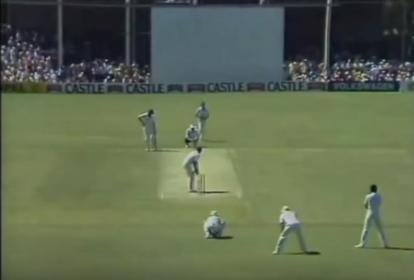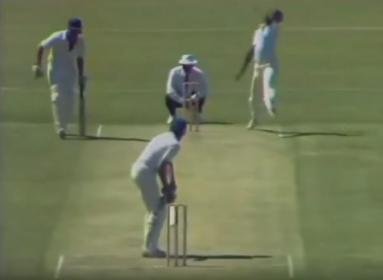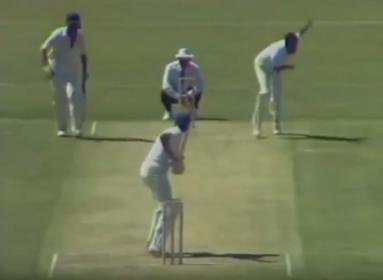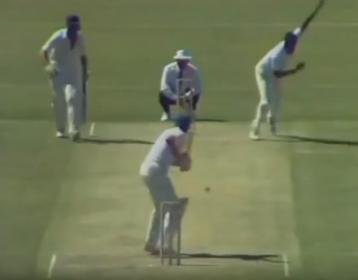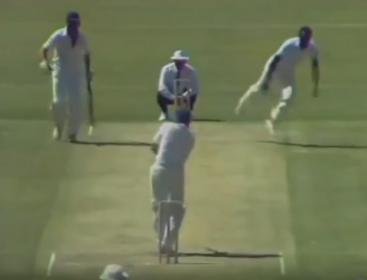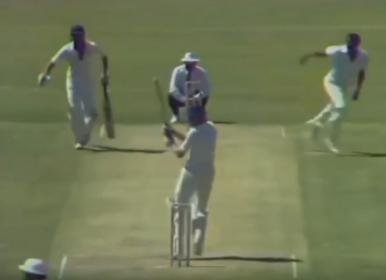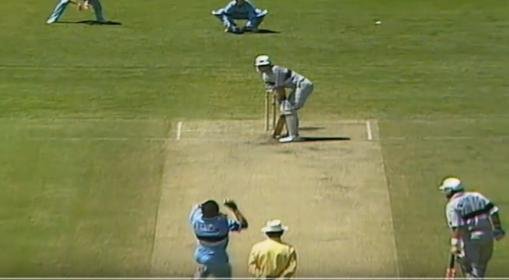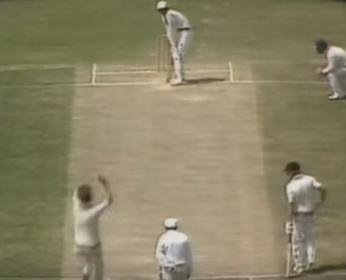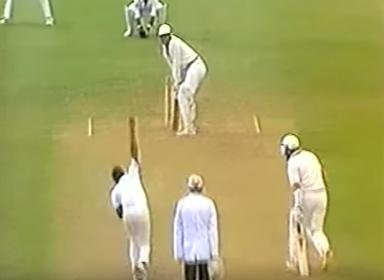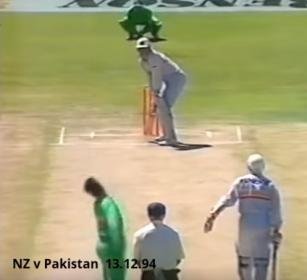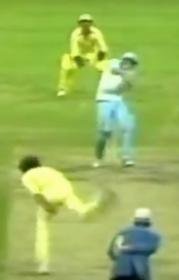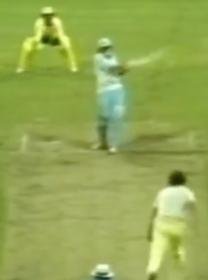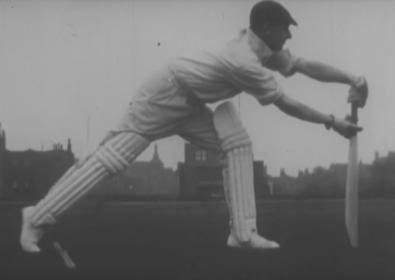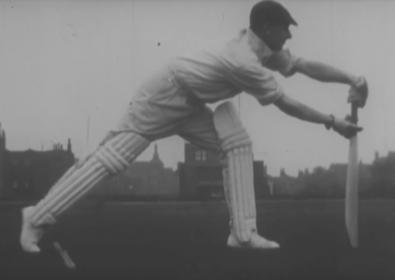That is a really ordinary looking pull-shot though, almost tail-ender like.
Here are few screenshots that I took from the WSC video that [MENTION=58109]CHRIS[/MENTION] posted. Barry Richards playing Dennis Lillee's short pitched deliveries:
View attachment 81472
View attachment 81473
The technique is comical. I don't see any modern batsmen getting himself into such positions while playing the short ball, but I often see tail-enders playing the short ball like that.
If you watch someone like Wahab Riaz or Rahat Ali pulling the ball, you would often see them getting into similar positions. In fact, the first screenshot reminds me of how Muralitharan used to play the short ball.
It is also pertinent to note that this is not Dennis Lillee at his quickest. By this time, he had cut down on his pace and was more focused on swing and seam.
And this is from the WSC SuperTests, the so-called highest level of cricket ever played. The quality of cricket is atrocious, and it clearly shows how much progress cricket has made over the last 20-25 years. The game and the players have gone up several notches.
That video looks more like a parody of cricket. The batsmen look like tail-enders who are having a good day, and the bowlers, Dennis Lillee aside, look like mediocre part-timers. Just look at them dawdling in with their uncoordinated, disjointed actions.
In that video, Dennis Lillee and Imran Khan look out of place, since they are the only ones who look like professional cricketers.
Up until the 1950s, cricket was a joke. A bunch of white men interested in this relatively newly invented game that the rest of the world were not particularly bothered about.
They monopolized the game in their era, made records that mean nothing today, and created legacies that have no significance in a professional context.
For example, Jack Hobbs, supposedly the greatest English opener of all time, is simply not comparable to someone like Alaistair Cook, but due to the establishment propaganda, calling Cook better than Hobbs would be a blasphemy.
This is the forward defense of the greatest English opener of all time, widely regarded as the pioneer of batting, and someone who achieved critical acclaim for his ability to master uncovered ("sticky dog") pitches, the pitches that apparently modern batsmen will not be able to handle:
View attachment 81474
The techniques of Bradman and Hobbs show the level of bowling at that time. Does this mean that they were bad players? Absolutely not.
They were products of their time, and they must have possessed special qualities that made them the best players in their period, for which their achievements have to be respected. However, they are not comparable to players from the professional era.
The 1950s to 1960s saw improvements in the standard of cricket as it became more professional. South Asian cricket, South African cricket and Caribbean cricket started to make an impact, and players like Sobers, Weekes, Hanif, Miller, Evans, Kanhai, Dexter, Hall, Benaud, Worrell, Gibbs, Simpson etc. emerged.
They were significantly better than the pre-war cricketers, but still not comparable to the "modern" cricketers that appeared onto the scene from the 1970s onwards.
All of these players deserve recognition for the achievements in their time. Irrespective of the low standard of the game and the low competition, they must have had some characteristics that allowed them to become the best in their time.
A lot of these players would have been great in any era since the qualities that made them among the very best of their time would have allowed them to adjust and evolve in different eras.
However, there is no need of immortalizing these players or putting them on a higher pedestal compared to modern cricketers, who will blow these players away with their modern skills and techniques.
There is ample evidence that the standard of cricket, similar to any other sports, has significantly improved over the generations. The myth that batting and bowling standards have dropped compared to what we had in the past has been debunked objectively numerous times, but unfortunately people are not willing to overcome their predispositions and get over the nostalgia of the era in which they grew up.
Nonetheless, it is perfectly fine if you disagree, and thank you for the appreciation. I thoroughly enjoyed this insightful discourse.







